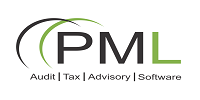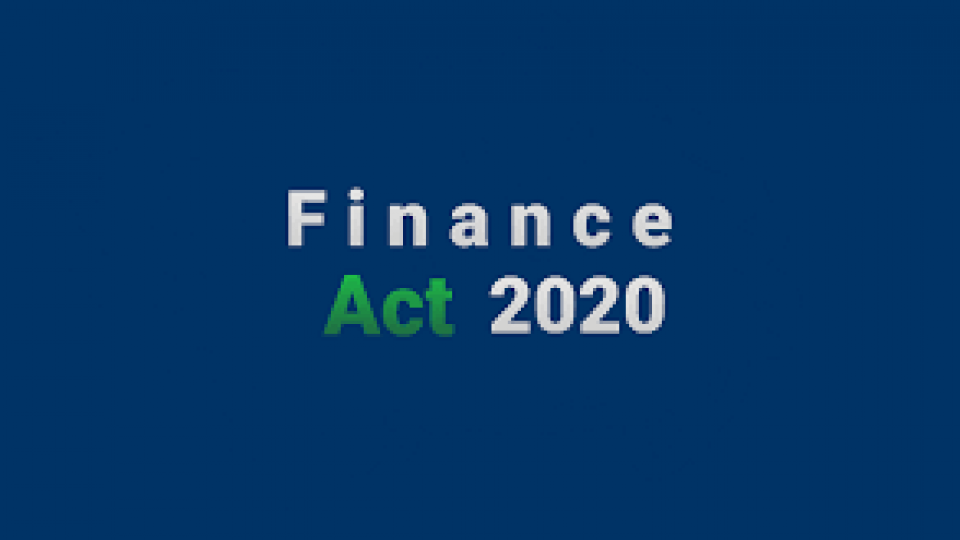FINANCE ACT 2020: A RECENT DEVELOPMENT IN NIGERIAN TAXATION
The Finance Act 2020 is the most recent developments within the Nigerian tax space. The Act amended seven major tax laws in Nigeria to make them suitable to meet present economic realities.
The tax laws affected are:
Companies Income Tax Act;
Personal Income Tax Act;
Petroleum Profit Tax Act;
Value Added Tax Act;
Capital Gain Tax Act;
Stamp Duties Act;
Custom and Excise Tariff;
- Companies Income Tax Act
The followings are some of the changes made to the Act by the Finance Act, 2020:
a. Tax Identification Number (TIN)
TIN is now a requirement for business transactions undertaken by companies. These requirements also include displaying the TIN on documents relating to business transactions and making TIN to serve as requirements for opening and operating bank accounts.
b. Profit of Non-Nigerian companies
Non-Nigerian companies are now liable to companies income tax provided they transmit, emit, or receive signals or data from Nigeria. This is an amendment to the basis of taxation of Non-Nigerian companies which was previously based on existence of ‘fixed base’ (permanent establishment) in Nigeria.
c. Notable impacts of Companies Income Tax amendments on insurance companies:
The Act has impacted on the insurance industry by granting companies the opportunity to carry forward their loss reliefs, indefinitely. The Act has also granted the provision for minimum tax to be the higher of 20% of gross income and 0.5% of gross premium for non-life insurance business or 0.5% of gross income for life assurance business.
d. Dividends
Dividends are no longer taxed as profit when dividend paid exceed profit provided that such dividend was paid out of present or prior year profit already subjected to tax under the Companies Income Tax Act or Petroleum Profit Tax Act.
e. Profit Exempted from Companies Income Tax
The profit of companies with turnover of less than N25 million in any year of assessment is exempted from Companies Income Tax provided that such companies comply with the provisions of Companies Income Tax Act in that year of assessment.
The dividend received from small companies in the manufacturing sector are exempted from Companies Income Tax provided it is within its first five years of operation. Also, the profit of Nigerian companies in respect of goods exported is exempted from tax provided the proceeds are used to purchase raw materials, plants, equipment and spare parts.
f. Real Estate Investment Companies
i. WHT Exemption (dividend distribution to shareholders)
The Finance Act specifically amended this provision by exempting the taxation of dividend distributions made by a real estate investment company to its shareholders from rental income and dividend income received on behalf of those shareholders, whether such dividends are paid out of profit in the year in which the dividend is declared or out of profit of previous reporting periods. (CITA, Section 19).
However, withholding tax will be paid by a real estate investment company on its management fee, profits and any other income earned, and dividend and rental income that is not distributed after 12 months from the end of the financial year in which the dividend or rental income was earned will as well be subjected to tax at source. (CITA, Section 23)
ii. WHT Exemption (dividend income)
Generally, withholding tax deduction shall not apply to a company or person making any distribution or dividend payment to a real estate investment company. By implication, this means that no withholding tax shall be deducted from dividends or distributions made to real estate investment companies.
iii. Ascertainment of Profit (Dividend and Rental Income)
Before the enactment of the Finance Act, rental income and dividend received by real estate investment companies on behalf of its shareholders are subjected to income tax.
In order to encourage dividend distributions to shareholders, the Act exempts dividend and rental incomes received by real estate investment companies on behalf of its shareholders from being subjected to income tax, provided that a minimum of 75% of dividend and rental income is distributed and such distribution is made within 12 months of the end of the financial year in which the dividend or rental income was earned.
However, the Finance Act amends Section 24 of CITA by specifying that dividends or mandatory distributions made by a real estate investment company that is duly approved by the Securities and Exchange Commission to its shareholders are allowable deductions in ascertainment of assessable profits. (CITA Section 24).
Redefinition of the Term, ‘Real Estate Investment Company’
The Finance Act amends Section 105 of CITA by redefining real estate investment company as a company duly approved by the Securities and Exchange Commission to operate a real estate investment scheme in Nigeria.
g. Amendments to the ‘Commencement Rule’
Prior to the enactment of the Finance Act, assessable profits of first year of assessment is based on the profit from the date of commencement to 31 December of that year. For the second year of assessment, assessable profits are based on the profits earned from the date of commencement to the next 12 months, while assessable profits of the third and subsequent years are profits earned during the basis period relating to the preceding year. However, the tax payer can elect to be assessed on actual year basis for the second and the third years of assessments, respectively.
With the Finance Act amendments, the Assessable profits for the first year of assessment is based on the profits from the date of commencement of business to the end of its first accounting period. The assessable profits for the second year of assessment are based on the profit from the first day after its first accounting period to the end of its second accounting period while the profits earned during third and subsequent years of assessment shall be assessed to tax on preceding year bases.
h. Amendments to the ‘Minimum Tax Rule’
The new basis for computing minimum tax has been changed to 0.5% of gross turnover less any franked investment income.
i. Amendments to Companies Income Tax Rates
Prior to the enactment of the Finance Act, all companies are taxed at the rate of 30%.
Small companies (i.e. companies that earn less than N25million in any year of assessment) are not liable to company income taxes. Medium-sized companies (i.e. companies with gross turnover of more than N25million but less than N100million) are liable to companies’ income tax at a rate 20%, while large companies (companies with N100million and above) are liable to companies income tax at a rate of 30%.
2. Personal Income Tax
i. Introduction of Tax Identification Number
Tax Identification Number is made a requirement for opening or operating existing bank accounts.
ii. Method of Applying for Objection to Assessment
Delivery in person, courier service or electronic mail are the methods of objecting to assessment.
3. Value Added Tax (VAT)
a. VAT Rate
VAT rate has been changed from 5% to 7.5%.
b. VAT registration
Taxable persons are required to register for VAT upon commencement of business. This amends the registration timeline of 6 months from the date of commencement.
Failure or refusal to register upon commencement attracts N50,000 for the first month and N25,000 in subsequent months.
c. VATable Revenue Thresholds
Companies that made or are expected to make taxable revenues of N25million and above in a calendar year are required to render return in the month in which the threshold is achieved and in subsequent months.
d. Penalty
The penalty for not remitting VAT on or before the due date has been changed to 10% from 5%, (plus interest at prevailing central bank of Nigeria minimum re-discounted rate).
Failure or refusal to register upon commencement attracts N50,000 for the first month and N25,000 in subsequent months. Failure to notify the Federal Inland Revenue Service of change of address within 30 days or permanent cessation within required timelines is liable to a penalty of N50,000 in the first month and N25,000 in subsequent months.



